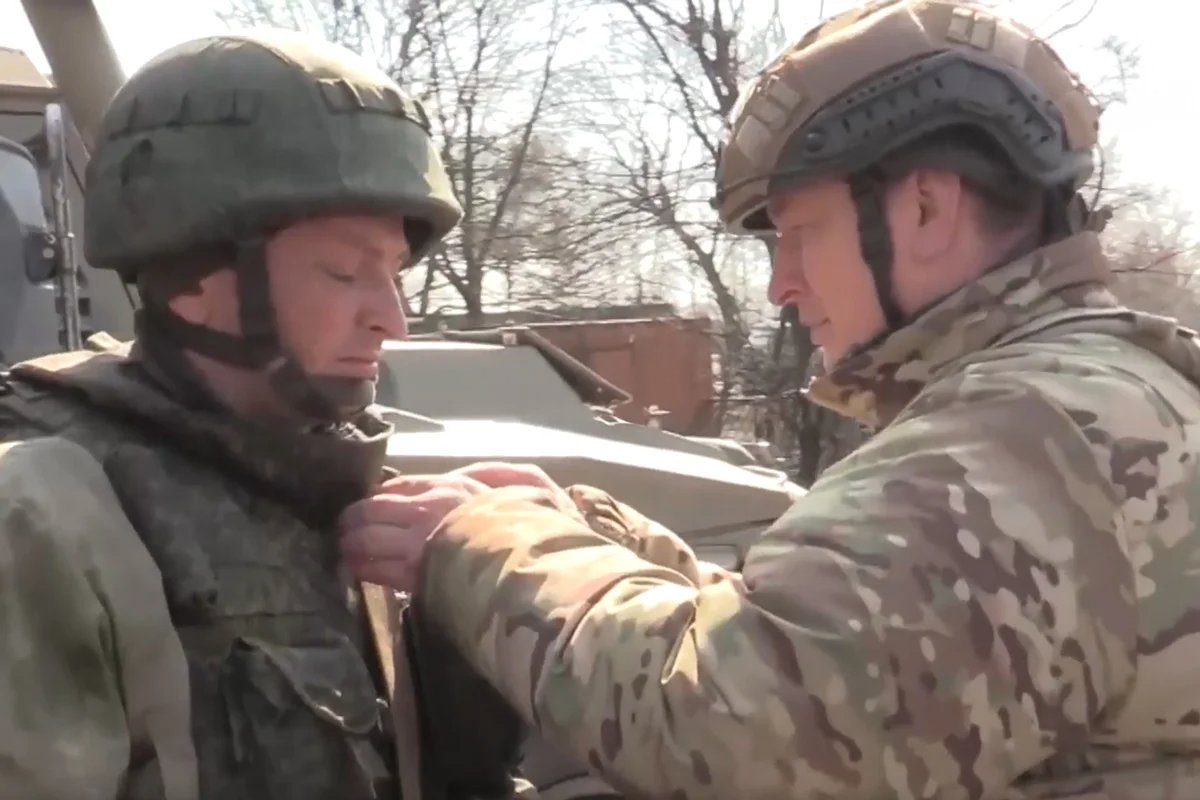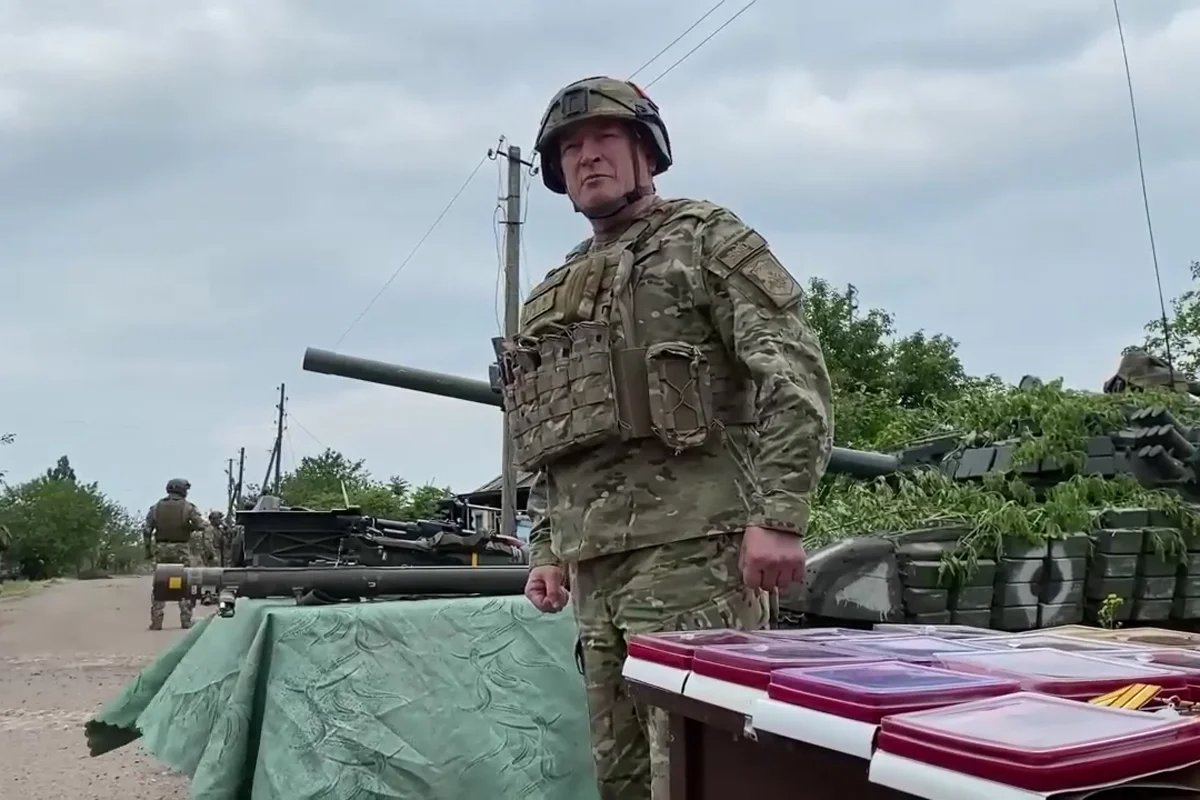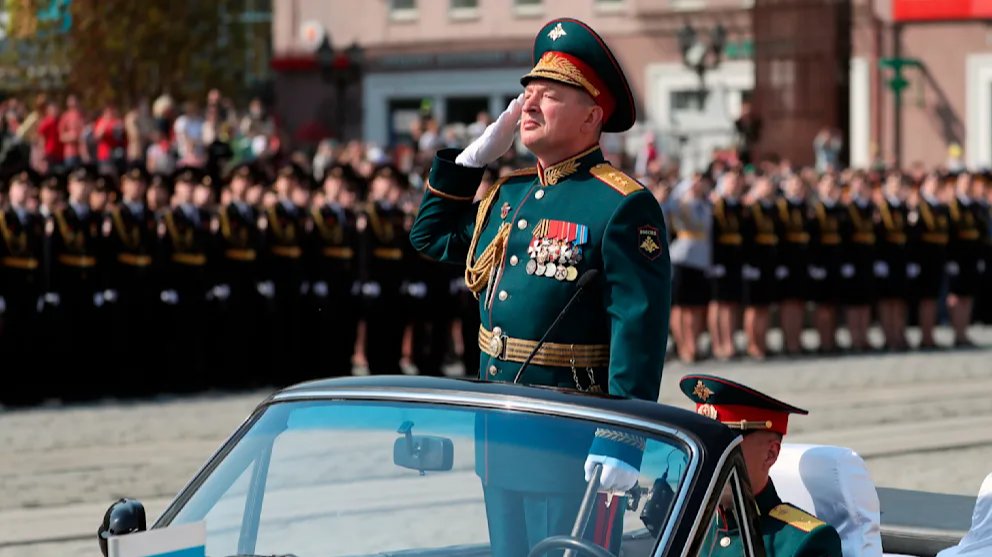Colonel-General Alexander Lapin dissolved the interagency council for the protection of Russia’s southwestern Kursk region in the spring, just a few months before the Armed Forces of Ukraine (AFU) launched their offensive, a Russian secret services source has told The Wall Street Journal. The decision may have created a gap in Russian defences. What is known about Lapin, who is coming in for criticism not for the first time?
The interagency council coordinated activities between the army and secret services in the Kursk region, according to The Wall Street Journal’s source. Lapin dissolved it, saying only that the army had sufficient strength and resources to defend the Russian border.
When the Ukrainian offensive in the Kursk region began, the Russian security forces didn’t have a unified command to turn to and acted chaotically and ineffectively as a result. There was also a power struggle between the Interior Ministry, the FSB and the Defence Ministry reminiscent of events in September 2022, when Ukrainian forces launched a lightning counteroffensive in the Kharkiv region. That time, the Russians had failed to sufficiently fortify their front-line positions, the WSJ reported, and Ukraine managed to reclaim thousands of square kilometres of its territory.
A Novaya Europe source in the Russian Defence Ministry believes Lapin would not have taken this decision alone as the council employed FSB, Interior Ministry and Border Guard Service members in addition to servicemen. “Lapin did not have the authority to dissolve the council,” the source said. “He could, of course, have lobbied for it to be shut down, but it wasn’t within his remit to shut it down himself.”
Lapin was born in Kazan, the capital of Tatarstan in Russia’s Volga region in 1964. A career soldier, he graduated from the Military Academy of the General Staff of the Armed Forces of Russia in 2009.
He served in Syria in 2017 before being appointed head of the Combined Arms Academy of the Armed Forces of Russia later that year. He led Russian troops in Syria again from 2018 to 2019. At the start of the war with Ukraine, he was appointed commander of the Centre group of military units, a division created specifically for the war effort.

Alexander Lapin awards his son Denis Lapin the Medal of Zhukov, March 2022. Photo: tvzvezda.ru
Lapin first hit the headlines in May 2022 after awarding the Medal of Zhukov — a state decoration awarded for bravery, selflessness and personal courage — to his son, Lieutenant Colonel Denis Lapin, who had been in charge of the failed Russian offensive on the Ukrainian cities of Sumy and Chernihiv. BBC News Russian noticed that the medal ceremony was broadcast on the Defence Ministry’s Zvezda TV channel exactly as the Russian army was retreating from around Chernihiv and Kyiv.
Vladimir Putin then made Lapin a Hero of Russia on 4 July 2022.
Focus of criticism
Lapin became the target of criticism during the large-scale Russian retreat in the autumn of 2022. The most acute criticism came from on high, with the head of Chechnya Ramzan Kadyrov writing on 1 October that he had to comment on events in the town of Lyman, in the Donetsk region.
“If I had my way, I’d have demoted Lapin to a private, stripped him of his medals and sent him to the front line with a machine gun in his hands to wash away his shame with blood,” Kadyrov said.
“The defence of the area was led by the commander of the Central Military District, Colonel-General Alexander Lapin,” Kadyrov said. “The same Lapin who received the star of the Hero of Russia for the capture of Lysychansk, even though he wasn’t there. … Two weeks ago, my dear brother and Akhmat Special Forces Commander Major General Apti Alaudinov told me our fighters could become an easy target. I informed the Chief of the General Staff Valery Gerasimov of the danger, but was assured he had no doubt in Lapin and did not believe a retreat was possible in Lyman and the environs.”
“I don’t mind Lapin being incompetent,” Kadyrov continued, “just the fact that it is covered up by senior members of the General Staff. If I had my way, I’d have demoted Lapin to a private, stripped him of his medals and sent him to the front line with a machine gun in his hands to wash away his shame with blood.”
Later the same month Wagner Group co-founder Yevgeny Prigozhin publicly agreed with Kadyrov’s analysis of the situation. “We have to work on our mistakes, in terms of both tactics and personnel. Let the workmen work for victory and minimise losses, while the idlers — Ramzan Akhmatovich knows who I’m talking about — must go now.”
Kadyrov answered Prigozhin, by further excoriating Lapin: “I’ve been trying to make contact with Colonel-General Lapin through my special forces commanders for the past few days, but my guys can’t find him. Shouldn’t the commander be on site and in touch with his colleagues?”
Kadyrov wondered aloud who was protecting Lapin, who had suffered no consequences despite the retreat of units under his command.
Lapin was embroiled in further scandal when it emerged he had threatened to kill a subordinate officer in an attempt to get a unit to return to a position it had abandoned. Telegram news channel SOTA shared an eyewitness account: “We were at a petrol station when Colonel-General Lapin arrived with his personal security detail. When he understood we had retreated, Colonel-General Lapin put a gun to the head of the commander of the 5th company, Lieutenant V*, and demanded we go back. He also called us traitors, deserters and many other names.”
“Lapin wasn’t solely responsible for the retreat of forces under his command in 2022,” a source in the Russian army told Novaya Gazeta Europe. “He simply didn’t have the resources to build lines of defence and provide them with the required personnel. The general himself was not seen as particularly cowardly. Everyone was in retreat from the line of contact at the time as the AFU had received long-range weapons and HIMARS multi-rocket launchers.”

Alexander Lapin. Photo: Russian Defence Ministry
Resurgence
A Defence Ministry source told reporters in January 2023 that Lapin had been appointed Chief of Staff of Russia’s Ground Forces. He also took over command of the Leningrad Military District in May.
Lapin was placed under sanctions by the UK, Ukraine and the European Union after Russia launched its invasion on 24 February 2022.
“Regarding the Ukrainian operation in the Kursk region, Lapin withdrew reserves from the area and transferred them to the Kharkiv region, where Russia has been conducting an offensive since 10 May,” the Defence Ministry source continued.
“Not a single general, even, I assume, the commander-in-chief, would have assumed that the Ukrainians would decide to cross all red lines and attack Russian territory. Lapin receives direct instructions from Chief of the General Staff Valery Gerasimov, who, by the way, is his patron and lobbies for new positions for him. It’s down to Gerasimov that Lapin is still where he is today.”
Join us in rebuilding Novaya Gazeta Europe
The Russian government has banned independent media. We were forced to leave our country in order to keep doing our job, telling our readers about what is going on Russia, Ukraine and Europe.
We will continue fighting against warfare and dictatorship. We believe that freedom of speech is the most efficient antidote against tyranny. Support us financially to help us fight for peace and freedom.
By clicking the Support button, you agree to the processing of your personal data.
To cancel a regular donation, please write to [email protected]

